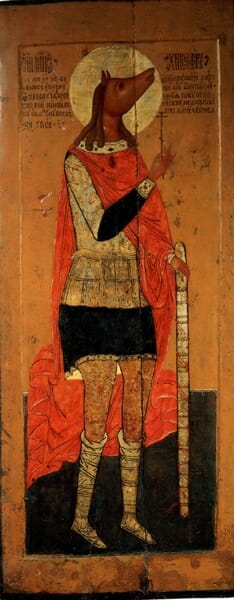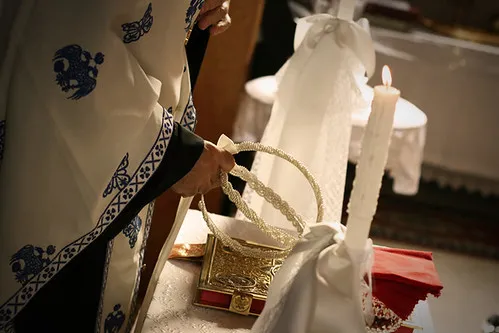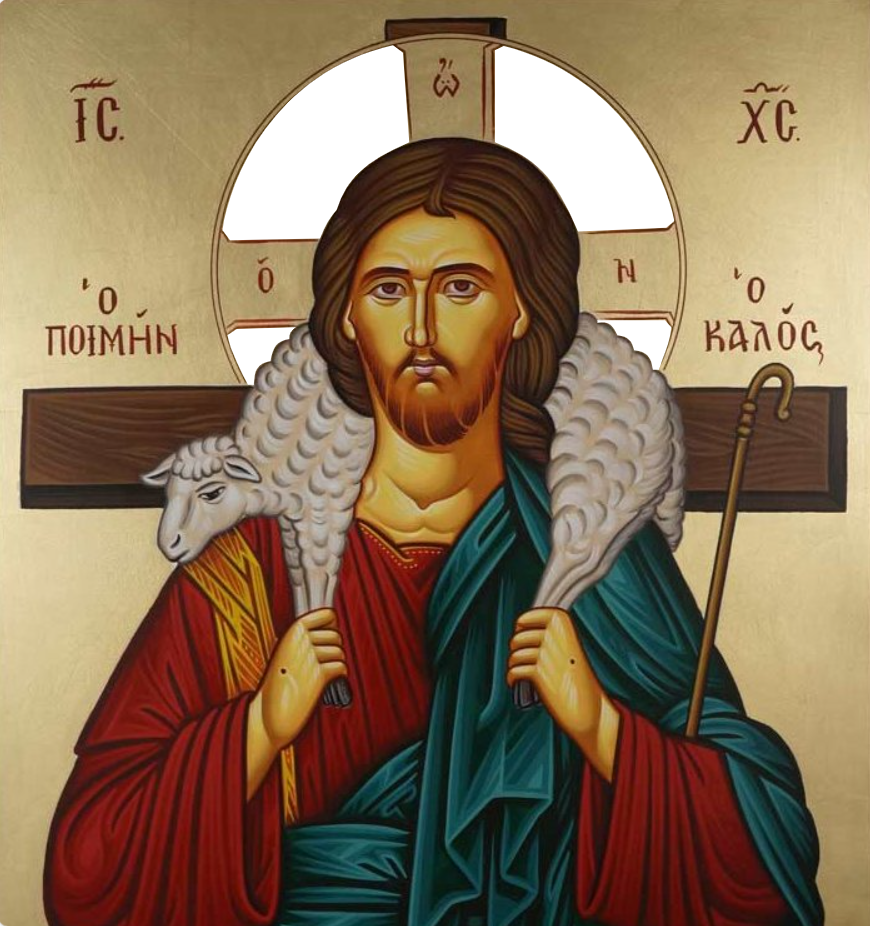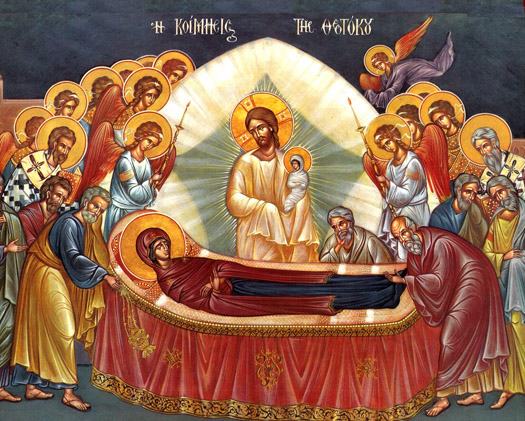Dogs Yes, Gays No
November 1, 2025
Dogs, yes! Gays, no!

A very dear friend of mine, a librarian, has dedicated much of her limited free time and endless care to raising guide dogs for veterans, the blind, as well as others needing loving support and companionship in their daily lives. She was instrumental in making sure that future guide service dogs were integrated into all parts of society, to better serve the humans they would be attending to. One of the numerous ways that she accomplished this was to bring the dogs to the school library to interact with the students and teachers. Having the dogs at school was very popular with students during stressful times, especially exam time, when petting the puppies brought their anxiety levels down considerably. As a dog lover, I relished popping in her office at least once a day to play with the dog of the day. To receive unconditional love from the dogs, especially during difficult days, was just fantastic.
For these reasons, I was pleasantly struck by the recent official communique of the Greek Orthodox Archdiocese announcing that they were “adopting a policy regarding service animals in our churches as a first step to ensuring all parishes are accessible to those suffering from physical disabilities.”[1] The official episcopal decision, posted September 14, 2025, is quite welcome and noteworthy but also raises a few questions. The statement indicates that this is a first step, leaving me speculating if other steps regarding additional ways to welcome those “suffering” will be or were considered to hopefully be included later. Also, the directive specifically only mentions physical disabilities, and I wonder about other “disabilities” such as emotional or mental. Despite these questions, any step to ensure that all people are welcomed into the house of the Lord to worship Christ is certainly a holy task. Interestingly, the bishops at this meeting also had the time and energy to decide that “traditional folk dance festivals” should be advanced to a “national ministry.”[2] A worthy endeavor, I am sure.
While greeting the decision and official step to making parish churches more accessible and welcoming (queue traditional dance music) to those with certain disabilities, one searches in vain for a sincere, open welcome to persons who have not traditionally been welcomed in Orthodox Churches, namely those of us who are LGBTQ. The last “official” statement from the Assembly of Canonical Orthodox Bishops of the USA, to which the Greek Orthodox Archdiocese belongs, was over ten years ago, in 2015, after the US Supreme Court decision to allow same-sex marriages.[3] Using terms such as “strongly disagree, an invention, immoral, unjust, harm, and threaten”, the bishops leave no room for any meaningful acceptance of LGBTQ Orthodox, or those LGBTQ interested in the Orthodox Church, or even the families, friends, and allies of the LGBTQ Orthodox faithful.[4] And yet, in the last 10 years, Greece, as a predominantly Orthodox country, has legally adopted same-sex marriage[5], and war-torn Ukraine is openly discussing allowing for same-sex marriage.[6] And while Ecclesiastical decisions should never be decided by civil governments alone, it should concern the bishops that in nearly 40 countries, same-sex marriage is now legal,[7] and certainly in many of those countries, there is a considerable number of Orthodox Christians who voted for or are in support of these laws. Are the bishops deaf to what their own faithful are experiencing, living, or supporting? And while it is heartening to read about a greater understanding and action to meet the needs of those with physical disabilities by welcoming dogs into Orthodox churches, where is the open and honest conversation, dialogue, thought, and actions with the bishops concerning those Orthodox Christians who are gay or lesbian or transgender, those in same-sex, state-sanctioned marriages, or those same-sex couples raising children? (more…)

 Are you a fan of or afraid of the dark? My husband and I frequently have a “battle of the lights.” Bright lights bother my eyes. Also, I was raised in a time when leaving any lights on in an unoccupied room would elicit a negative comment from my father about the high electricity bill. On the other hand, my husband never met a light he did not want to illuminate, and I frequently accuse him of holding stock in our local electric company.
Are you a fan of or afraid of the dark? My husband and I frequently have a “battle of the lights.” Bright lights bother my eyes. Also, I was raised in a time when leaving any lights on in an unoccupied room would elicit a negative comment from my father about the high electricity bill. On the other hand, my husband never met a light he did not want to illuminate, and I frequently accuse him of holding stock in our local electric company. The recent Olympics in Paris were quite a spectacle. From the unusual opening parade on the Seine River to the amazing story of US gymnast Simone Biles, the Olympics were an impressive competition to behold. Nevertheless, the event was not without its controversies. What struck me, in particular, was the storm surrounding the women’s boxing match and the boxer from Algeria.
The recent Olympics in Paris were quite a spectacle. From the unusual opening parade on the Seine River to the amazing story of US gymnast Simone Biles, the Olympics were an impressive competition to behold. Nevertheless, the event was not without its controversies. What struck me, in particular, was the storm surrounding the women’s boxing match and the boxer from Algeria. Four Weddings and a Funeral is a British movie, released in 1994, about the romantic adventures of Charles, played by Hugh Grant, and his lively group of friends as they support each other through a series of life events. Perhaps one of the most touching and memorable scenes takes place at the funeral of one of the friends, Gareth. It is revealed at the service that Gareth was not only gay but in a relationship with another member of the circle of friends, Matthew. In his eulogy, Matthew said “Gareth used to prefer funerals to weddings. He said it was easier to get enthusiastic about a ceremony one had an outside chance of eventually being involved in.”
Four Weddings and a Funeral is a British movie, released in 1994, about the romantic adventures of Charles, played by Hugh Grant, and his lively group of friends as they support each other through a series of life events. Perhaps one of the most touching and memorable scenes takes place at the funeral of one of the friends, Gareth. It is revealed at the service that Gareth was not only gay but in a relationship with another member of the circle of friends, Matthew. In his eulogy, Matthew said “Gareth used to prefer funerals to weddings. He said it was easier to get enthusiastic about a ceremony one had an outside chance of eventually being involved in.” Watching a documentary recently about the detrimental and life-threatening struggles thousands of homeless children face, I was struck by the following words of one of the counselors: “Be the person you needed when you were younger.” The often-quoted words are believed to originate from Ayesha Siddiqi, an author and children’s advocate. The counselor made this impassioned plea to those who might be able to support the admirable work of helping homeless children. Those of us fortunate enough to live in relative peace and prosperity rarely think, for very long, about those considerably less fortunate than us. Understandably, we get caught up in our own world and may only take a few moments to think about or help those less privileged and in need. To be sure, those needing everything from a warm smile, a compassionate ear to a good meal, are all around us if we just took the time to look and think and act. When we act, listen or think only a portion of the time about others, we are not being the person that others need.
Watching a documentary recently about the detrimental and life-threatening struggles thousands of homeless children face, I was struck by the following words of one of the counselors: “Be the person you needed when you were younger.” The often-quoted words are believed to originate from Ayesha Siddiqi, an author and children’s advocate. The counselor made this impassioned plea to those who might be able to support the admirable work of helping homeless children. Those of us fortunate enough to live in relative peace and prosperity rarely think, for very long, about those considerably less fortunate than us. Understandably, we get caught up in our own world and may only take a few moments to think about or help those less privileged and in need. To be sure, those needing everything from a warm smile, a compassionate ear to a good meal, are all around us if we just took the time to look and think and act. When we act, listen or think only a portion of the time about others, we are not being the person that others need.  Through the generosity of the editors of “Orthodoxy in Dialogue,” we are pleased to re-post a wonderfully sincere and poignant piece entitled “A Gay’s Man Dormition Story”, published on their website on August 15, 2023, by an anonymous source. Please read the full article by following the link to “Orthodoxy in Dialogue” below, following the first paragraph of the work.
Through the generosity of the editors of “Orthodoxy in Dialogue,” we are pleased to re-post a wonderfully sincere and poignant piece entitled “A Gay’s Man Dormition Story”, published on their website on August 15, 2023, by an anonymous source. Please read the full article by following the link to “Orthodoxy in Dialogue” below, following the first paragraph of the work.  “Torch Song Trilogy,” written by Harvey Firestein in the 1970s, is a collection of three one-act plays in which the main character, Arnold Beckoff, wrestles with how to live his life, as a gay man, in a post-Stonewall New York City. Central to the plot of the story, later turned into a movie, are Arnold’s relationships with boyfriends, co-workers, his adopted son, and his mother. Arnold’s mother has a difficult time accepting her son’s homosexuality, and questions why he can’t just settle down and marry a “nice Jewish girl”. Arnold is frequently agitated and unhappy with his mother’s refusal to believe that he was “made this way”, in other words, made gay, by God. In one very funny scene, Mrs. Beckoff, “Ma”, in exasperation that her son thinks he knows more about his life than she does, states, “God, doesn’t know, my son knows.”
“Torch Song Trilogy,” written by Harvey Firestein in the 1970s, is a collection of three one-act plays in which the main character, Arnold Beckoff, wrestles with how to live his life, as a gay man, in a post-Stonewall New York City. Central to the plot of the story, later turned into a movie, are Arnold’s relationships with boyfriends, co-workers, his adopted son, and his mother. Arnold’s mother has a difficult time accepting her son’s homosexuality, and questions why he can’t just settle down and marry a “nice Jewish girl”. Arnold is frequently agitated and unhappy with his mother’s refusal to believe that he was “made this way”, in other words, made gay, by God. In one very funny scene, Mrs. Beckoff, “Ma”, in exasperation that her son thinks he knows more about his life than she does, states, “God, doesn’t know, my son knows.”